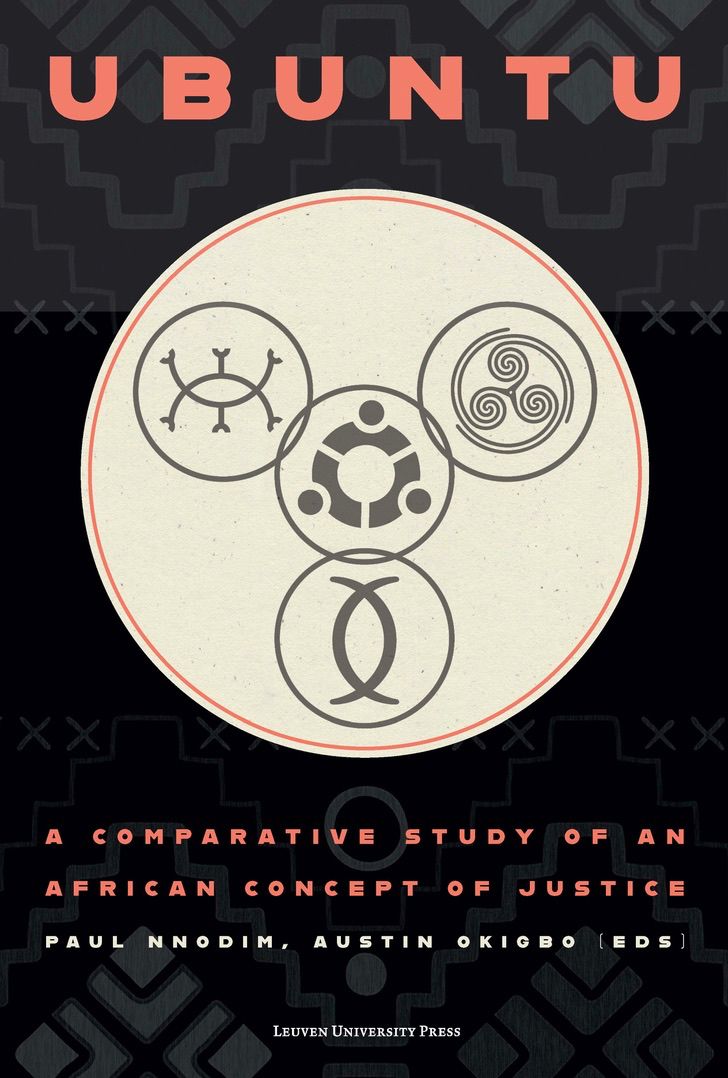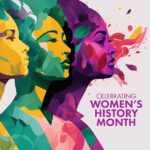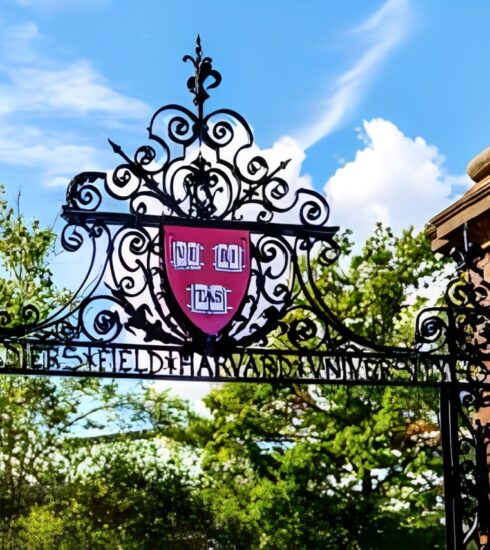Dr. Austin Okigbo is passionate about certain things. One of his passions is dismantling entrenched beliefs through research. Like a myth-buster, he challenges notions that have long masqueraded as irrefutable truths. His quest extends beyond the African traditional beliefs, reaching into the heart of Western sociological and technological hegemony.
He is an associate professor in the College of Music and affiliate faculty in Ethnic Studies and Global Health at the University of Colorado. He co-authored the newly released book titled ‘Ubuntu’ alongside Dr. Paul Nnodim, a professor of philosophy at the Massachusetts College of Liberal Arts.
The book weaves interdisciplinary perspectives into the discourse on African relational ethics in contrast with Western normative ideals across a wide range of issues, including justice, sustainable development, musical culture, journalism, and peace. It explains the philosophy of Ubuntu to both African and non-African scholars.
I had an extensive conversation with Dr. Austin Okigbo recently during which we talked about the book. Please read and enjoy our insightful conversation.

Dr. Austin Okigbo, co-author
Afrik Digest: Congratulations on your new anthology, Ubuntu, A Comparative Study of an African Concept of Justice. I am eager to delve in and find answers to some of the questions thrown up in your book. Could you please start by introducing yourself?
Dr. Okigbo: My name is Austin Chinagorom Okigbo. I teach ethnomusicology, African Studies, and Global Health at the University of Colorado, Boulder.
Afrik Digest: For the sake of some of our readers who may not be familiar with the word ‘Ubuntu’ and its meaning as an African concept of justice, could you explain it briefly?
Dr. Okigbo: Yes. Ubuntu is first of all a word found in several Eastern and Southern Bantu-speaking African languages. In isiZulu and the Nguni languages of Southern Africa, it is an abstract noun that refers to ‘humanity’, and its proper noun is umuntu (plural, abantu) which means person. So, as an abstract noun ubuntu refers to that which defines personhood, in other words, what makes a person truly human. Hence the meaning of the concept is succinctly articulated in the saying ‘umuntu ungumuntu ngabantu’ (a person is a person with, or because of, other persons). It means that the quintessence of a person consists in being with other persons. It is for this reason that ubuntu has come to be understood as a philosophy of relationality. By examining its articulation and applications in different spheres of human activities in the text under discussion, we envisage how this African philosophy can infuse and so be positively consequential in modern forms of organization of societies, as well as shape interpersonal and even inter-societal relationships.
Afrik Digest: What inspired you to delve into the concept of Ubuntu and its implications for justice?
Dr. Okigbo: Whereas I was aware of the concept and its application as a form of social philosophy among the Southern and Eastern Bantu groups of Africa, I gained more insight into the concept and philosophy during my days as a student of African Philosophy in Nigeria, and later in African Studies at Indiana University African Studies Program. In those early days of the post-apartheid system, the word was also in common use in scholarly circles largely thanks to Archbishop Desmond Tutu who invoked it and anchored the South African Truth and Reconciliation Commission’s (TRC) project on the ubuntu philosophy.
As a student, I kept wondering what other ways ubuntu may be applicable in relational ethics and normativity. The insight gained from these levels of academic inquiry allowed me to apply it as an indigenous theory in my study of the creative responses to the problem of HIV/AIDS in South Africa nearly 20 years ago. People came together in the spirit of Ubuntu to support HIV-positive patients. I could decode the patterns of the creative responses as rooted in this indigenous thought via depth of ethnographic study and analyses. I used Ubuntu as a framework for analyzing, for example, the processes of collective musical creation, group organization, and mutual support among members of the Siphithemba Choir, a choral ensemble of all HIV-positive individuals in Durban with whom I worked during my one-year-long stay in South Africa as a Fulbright scholar.
Much later in 2018, my colleague, Paul Nnodim, who is a renowned scholar of John Rawls’ Theory of Justice, and I embarked on an article for a journal of philosophical ethics in which we used the case study of the Siphithemba Choir to examine the application of ubuntu and how it may compare with the Rawlsian idea of ‘justice as fairness.’ The impact of the article made the University of Leuven approach us, and they asked us to consider doing a book project on the topic. So, you can see that my initial inspiration came from my days as a student of African philosophy, and it has been an intellectual journey that brought us to the culmination of the Ubuntu book project.

Dr. Paul Nnodim, co-author
Afrik Digest: In your research, did you encounter any surprising parallels between Ubuntu and other justice systems worldwide?
Dr. Okigbo: Oh yes. As I stated in response to your previous question, the first comparative study was the analysis of the concept vis-à-vis John Rawls’ theory of justice. But that was not necessarily surprising as it constituted an affirmation of what my colleague and I (by the way, we were both graduates of the philosophy program at the then Bigard Memorial Seminary, Ikot Ekpene, Nigeria) always thought that there is congruency between African indigenous thought patterns and the philosophical ideas that have been written in books by Western scholars, which shows the unity of the human mind despite colonial distortions. This very fundamental led us to further probe ubuntu’s articulation in other domains of human activity, and as you can see from the text, it covers topics across disciplinary domains including philosophy, economics and sustainable development, musical culture, journalism and media practice, and peace studies.
Afrik Digest: How does Ubuntu challenge or complement John Rawls’ theory of justice or other existing Western legal frameworks?
Dr. Okigbo: I’d rather say that our purpose in the book is not to offer Ubuntu as complementary to the existing Western legal framework but to challenge the Western framework in the light of the failed promise of capitalism and the threat to democracy, human relations, and global peace. This is especially true as we are witnessing increasingly today the rise of neo-fascism and authoritarian rules that can torpedo the current, though fragile order, of global peace thereby plunging us back into the brutish-like culture of the European dark ages.
Afrik Digest: Can you share a specific case study or anecdote that exemplifies Ubuntu’s impact on resolving disputes?
Dr. Okigbo: Let me say that despite Archbishop Tutu’s anchoring of the South African TRC on the principles of Ubuntu, we must not reduce it to a philosophy for conflict resolution. If anything, it is a philosophical worldview that provides a kind of guardrail against dissolution into conflict situations in society. As a humanistic philosophy, Ubuntu is about extolling the best about humanity and human beings as a species of communal living. That said, instances abound in the application of Ubuntu in conflict resolutions as exemplified in certain chapters in the book, be it in Sudan or Uganda.
I must point you to another concept you never hear about in the Ubuntu discourse. It is ‘Indaba’ which is a Zulu and Nguni word for a meeting, dialogue, or consultative forum. The concept is also integral to the Ubuntu idea in that it is a process by which competing and/or complimenting parties negotiate or prevent crises in the community. It is used also as a means of continually evaluating the conditions of communal living to ensure the sustainability of ubuntu. I have used this in my ethnomusicological studies and teaching on hydro politics in the Nile Basin to explain the use of creative mediums such as music to promote peace and to prevent conflicts among the riparian States who are constantly on edge over the usage rights to the Nile waters. A comparative idea is found in the Swahili word ‘baraza’ which was used during the days of the HIV/AIDS crisis in Kenya and Tanzania as a bottom-up approach to mobilize the communities in a campaign against the disease at the time as opposed to the top-down white savior syndrome that was hitherto prevalent thanks to the nature of prescribed solutions by organizations that were funded and directed by European and American agencies.
Afrik Digest: Ubuntu emphasizes community and interconnectedness. How does this influence individual responsibility within the justice context?
Dr. Okigbo: This question touches on one of the criticisms of Ubuntu philosophy by Western scholars who see the idea of communitarianism as entailing an encumbrance of the individual. We addressed this issue in chapter two of the text, and I’d direct anyone there for further reading. I will put it simply in these words that belonging to a community does not rob one of their individuality, rather what robs one of their unique personality are those acts that potentially deprive them of their dignity.
Another thing is that people may criticize Ubuntu as communitarianism, depriving the individual of agency, but that is like suggesting that the self-authenticating individual is only possible without any form of relational ethos with other human beings and their environment. The failed promise of capitalism that I mentioned earlier is rooted in this way of thinking- the notion that you have unlimited freedom as a personality island to do what you like. Then how can anyone build a civilized society based on that? It is that kind of mindset that is accounting for some of the aberrations and political incivility that we are experiencing today in many places including here in the United States. This mindset is threatening its democracy leaving one thus to wonder about the so-called American exceptionalism as imagined by Alexis de Tocqueville.

The Book Cover
Afrik Digest: Ubuntu often prioritizes reconciliation over punishment. How do you navigate this tension in your comparative analysis?
Dr. Okigbo: I’d refer you to chapter nine of the text in which Professor Brahim El Guabli of Williams College used the case of transitional justice in Morocco to interrogate the seeming sense of unfinished justice. A similar question has been raised about South Africa’s TRC. Where lies justice when a perpetrator of crime against another is walking free and continues to reap the generosity of his criminality or act of injustice while the victim is asked to forgive and carry on while still dealing with the fallouts of the acts of injustice? I must say that prioritizing reconciliation over punishment may be evocative of the spirit of ubuntu, but the non-resolution of the conditions of injustice is not, since it does not account for the humanity and dignity of the person who has been harmed. This is where the South African TRC and Morocco’s transitional justice pose problems.
Afrik Digest: Are there any misconceptions about Ubuntu that you’d like to address through your book?
Dr. Okigbo: The two most common misconceptions are the criticism of ubuntu as entailing an incumbrance of the individual which I have already addressed, and I also pointed out that it was addressed in chapter two of the book, especially from on page 53. That is as far as Western critics are concerned. The other issue is that the sound of Ubuntu as a social philosophy is attractive to the point that someone somewhere may think that an overwhelming acceptance of the philosophy ensures a perfect state of Uhuru. Or still, the tendency to romanticize any African past as perfect thanks to Ubuntu. We should bear in mind that any philosophy of organization of society is only aspirational in the sense that it is an intellectual orientation aimed at steering society in the direction of an imagined state of perfection.
It is for this reason that I also fire back at some Eurocentric scholars who like to repudiate the discourse on ubuntu as nonsensical just because Africans fought inter-tribal wars. To such persons, I say show me which Western philosophy especially of the so-called enlightenment is so pure in its humanistic applications, and you’d have to explain its failure to prevent the carnages of WWI and WWII, slavery and colonialism, the Napoleonic Wars, the Cold War and its iterations in the 21st century. The beauty of Ubuntu as a philosophy is that it has a mechanism within it that allows communities to continue to monitor its application and sustainability. But that also shows Africans’ recognition of the fact of multiple possibilities in the spheres of human endeavors.
Afrik Digest: How can Ubuntu inform contemporary discussions on restorative justice and healing?
Dr. Okigbo: Ubuntu literally means ‘humanity.’ The recognition of the humanity of a person even when they have committed heinous acts is the basis of restorative justice. Our ability to engage in emotional solidarity with another person who may be different from us whether morally or physically is the essence of being human. That makes healing, restoration, and restitution better than punitive justice.
Afrik Digest: Lastly, what message do you hope readers take away from this book?
Dr. Okigbo: I encourage any reader to pay attention to the various ways in which the application of the philosophy has been discussed by the various contributors in the anthology. For a while, the conversation has been dominated by voices in political science, philosophy, and peace and conflict studies. But there is something in the text for anyone from any disciplinary sphere who wants to apprehend this African concept of justice at a much deeper level.
Afrik Digest: It’s been an enlightening conversation, thank you for the opportunity.
Dr. Okigbo: You are welcome and it’s been my pleasure.






